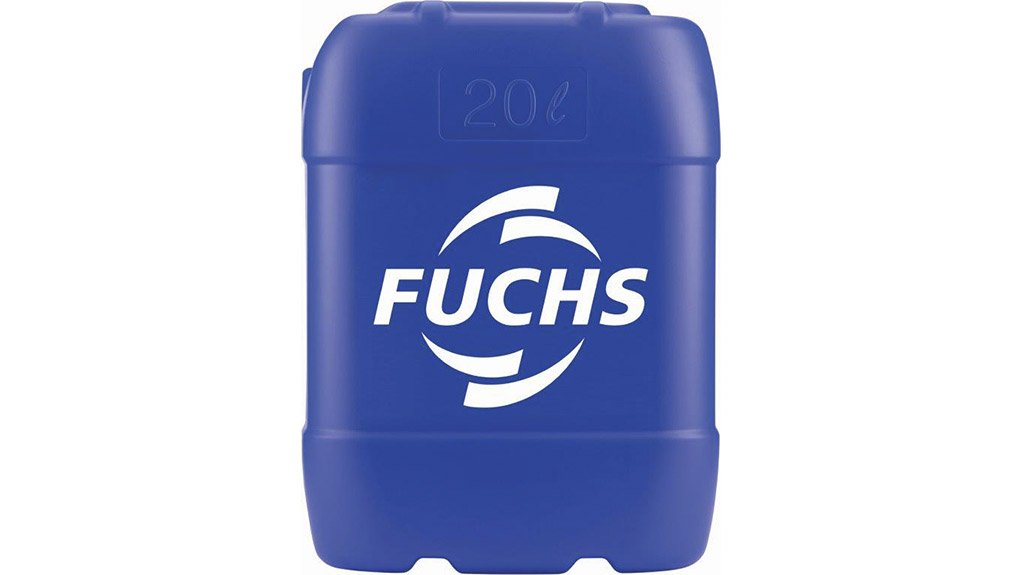

Regular maintenance of cutting fluids is essential to maintain quality
Regular cleaning and maintenance of cutting fluid systems significantly enhances overall efficiency by extending the life of the cutting fluids, reducing downtime, and improving the quality of the end products. “Regular maintenance is key to optimal performance. Our clients typically undertake thorough machine cleanings around shut down periods to prevent unpleasant odours from bacterial growth in stagnant soluble oil,” explains Ashleigh Pollen, Industrial & Specialty Manager at FUCHS LUBRICANTS SOUTH AFRICA
The main functions of a cutting fluid include lubrication, cooling, chip removal, corrosion prevention, cutting performance and enhancement of surface finish. Water-miscible soluble cutting fluids are emulsions or solutions created by mixing the product with water, at concentrations based on the intended application.
These provide excellent cooling due to their high-water content. They are typically used in high-speed machining where cooling is critical, but require regular monitoring to prevent bacterial growth, and have more complex disposal needs.
In contrast, non-water-soluble (neat) cutting fluids are pure oils made from mineral, synthetic, or vegetable oils, offering superior lubrication, but less effective cooling. These are used in low-speed machining or with difficult-to-machine materials requiring high lubrication. They are easier to maintain and dispose of, with less bacterial growth.
Over time, oil can deteriorate and lose its ability to lubricate effectively, resulting in increased wear and the potential for damage. “It is crucial to conduct regular maintenance and timely replacement of soluble oils to ensure that the machining process remains efficient, safe, and cost-effective,” stresses Pollen. This practice helps prevent contamination, as soluble oil can accumulate dirt, metal particles, and other impurities.
Regular oil changes assist in managing these contaminants, thereby averting damage and maintaining machinery efficiency. In addition, soluble oil plays a vital role in cooling by dissipating heat generated during operation. As the oil ages, its cooling capabilities diminish, which can lead to overheating and subsequent damage.
Consistent maintenance also extends the lifespan of equipment by ensuring proper lubrication and cooling, ultimately reducing the necessity for expensive repairs or replacements. Finally, this routine practice guarantees optimal performance, as clean and fresh oil allows machinery to function smoothly and efficiently, thereby sustaining productivity.
Pollen points out that many cutting fluids incorporate biocides that effectively eliminate or reduce the growth of bacteria and fungi. This is crucial to prevent microbial contamination, which can result in unpleasant odours, skin infections, and respiratory problems for employees.
It is imperative to conduct regular monitoring and maintenance of cutting fluids, including assessments for bacterial contamination. Such practices ensure the early detection and effective management of any microbial growth, thereby preserving the quality and safety of the fluids.
Cutting fluids play a vital role in cooling and lubricating the cutting process which, in turn, diminishes the heat produced. Reduced temperatures can hinder bacterial growth, as many bacteria grow in warmer environments. The appropriate use and upkeep of cutting fluids promotes a cleaner workplace by decreasing the buildup of metal particles and other contaminates.
“This minimises the likelihood of infections and various health concerns. Compliance with health and safety regulations regarding the application and disposal of cutting fluids is essential to safeguard workers from exposure to harmful bacteria and chemicals,” says Pollen.
FUCHS addresses these challenges through a comprehensive approach. It recommends regular monitoring of fluid concentration and pH levels, using refractometers and pH meters to ensure optimal conditions. To combat bacterial growth, FUCHS uses biocides and system cleaners such as RENOCLEAN SYSTEM CLEANER 124, which is added during fluid changes to eliminate bacteria and fungi.
It also emphasises the importance of removing tramp oil using skimmers or separators and suggests regular cleaning of the system to remove swarf and other contaminants. In addition, FUCHS provides support products like anti-foaming agents and offers technical support to help maintain fluid performance and address any issues that arise.
FUCHS’ cutting fluids enhance cutting speeds and maintain product quality by reducing friction between the cutting tool and the material, which minimises heat generation and wear on the tool. This allows for higher cutting speeds without compromising the tool’s lifespan.
In addition, FUCHS’ cutting fluids are formulated to provide excellent cooling, which helps dissipate the heat generated during high-speed machining. This cooling effect prevents thermal damage to both the tool and the workpiece, ensuring a high-quality surface finish and dimensional accuracy.
FUCHS’ cutting fluids are designed to flush away chips and swarf from the cutting zone, preventing recutting and potential damage to the workpiece. The fluids also contain additives to enhance lubrication and protect against corrosion, further contributing to the longevity of the tools and the quality of the machined parts. “By maintaining optimal machining conditions, FUCHS cutting fluids help increase productivity and reduce the cost per produced unit,” says Pollen.
FUCHS has made significant strides in cutting fluid technology to tackle modern machining challenges. These include eco-friendly formulations for cutting fluids free from harmful substances, making them safer for the environment and workers. For enhanced cooling and lubrication, the ECOCOOL range improves machining efficiency and extends tool life with excellent cooling, flushing, and lubricity.
For low emission and MQL fluids, the ECOCUT LE range reduces misting and evaporation, enhancing air quality and safety. Biodegradable options include the PLANTOCUT series, which offers high-performance, environmentally friendly biodegradable fluids.
Advanced monitoring tools allow for testing cooling lubricants for optimal performance and safety compliance. Global availability is also key, with FUCHS ensuring consistent quality and expert support worldwide. “These advancements enhance performance, safety, and sustainability in modern machining,” concludes Pollen.






